Moscow was hot and muggy when we landed. She was temperamental – at times overcast, at times sunny. She was vast, immense like Russia itself. She was full of metro stations, Italian restaurants, kebab outlets. She was completely Cyrillic and very little English. All in all she was quite pretty, really.
We dragged our broken suitcase and four backpacks to Lux Apartments (a euphemism if ever I came across one!), a private apartment tucked away in a tenement block about a kilometre from the train station. We entered the two-bedroom place and said to ourselves, “Whoa, this is so Soviet!” We walked to and through Gorky Park and couldn’t get Scorpion’s “Wind of Change” out of our heads. We imagined seeing Putin walking out of the Kremlin.
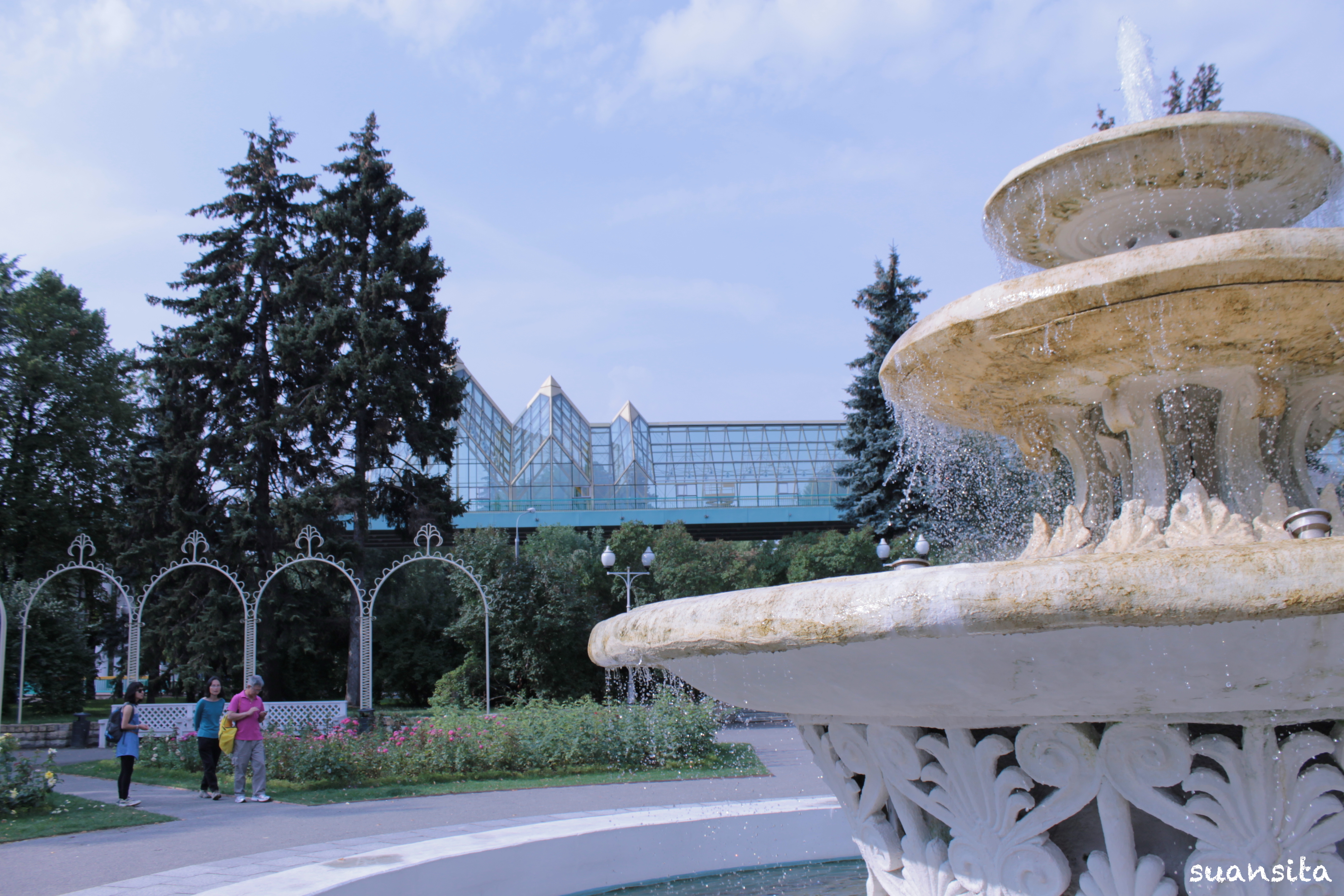
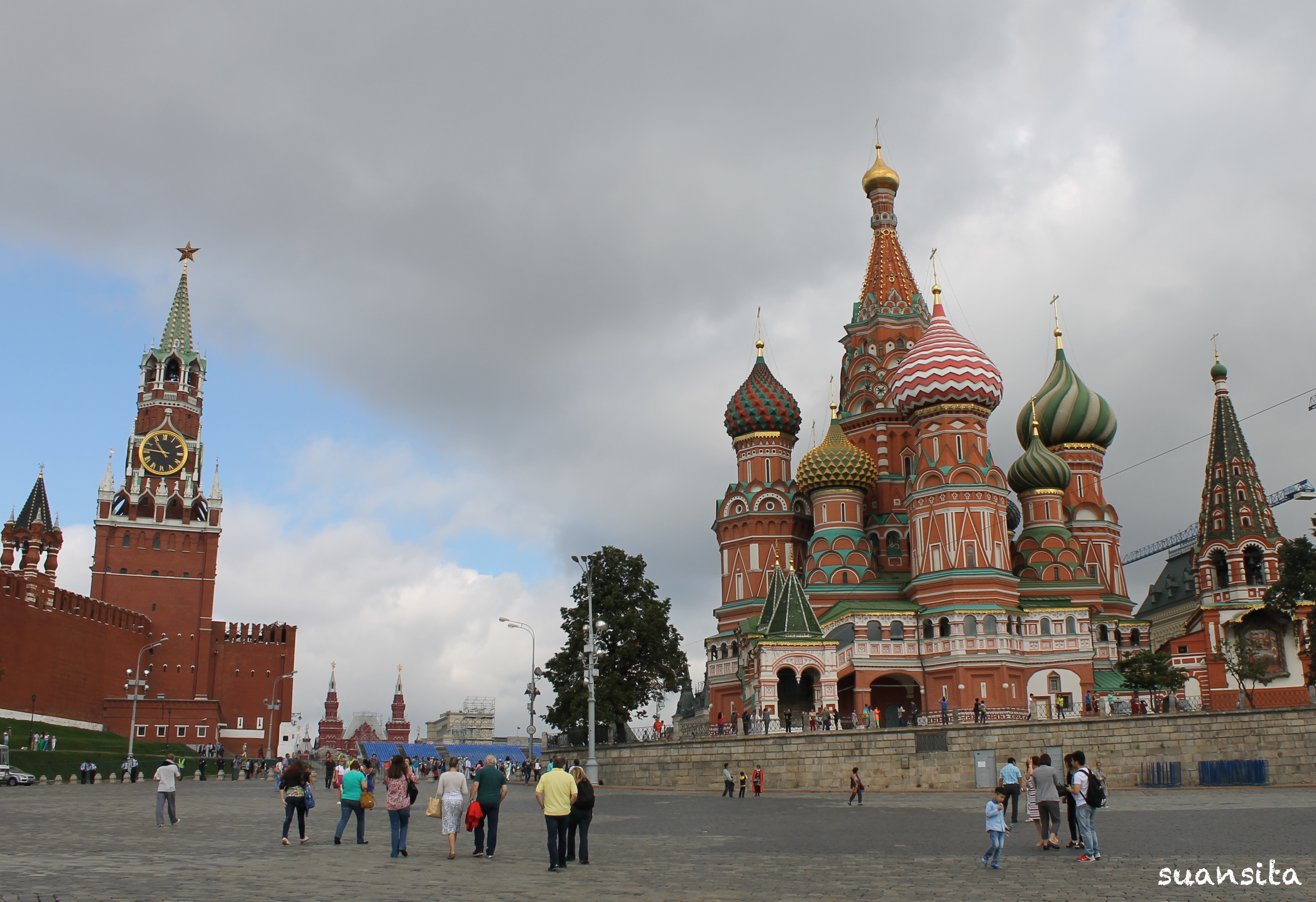
Yet I am left with a lingering sense of disappointment, as if Moscow was somehow, well, not quite Muscovite enough.
Expectation, disappointment and surprise
It’s often said that the joy of travelling is in discovering new places and new things. Yet too often we travel with expectations. Even though I knew we were going to Moscow in the summer of 2014, I somehow hoped it would be like Moscow in the winter of 1934. As if I could possibly have any real notion of what Moscow in the early-mid twentieth century would be like! I thought she would be more communist (or more overtly capitalist). I thought she would be colder and greyer, more solemn. I thought she would be more Eastern, more oriental.

Where did these notions come from? Probably from TV, twentieth century history class in high school, and from Doctor Zhivago and The Master and Margarita, the only two Russian novels I’ve read to date.
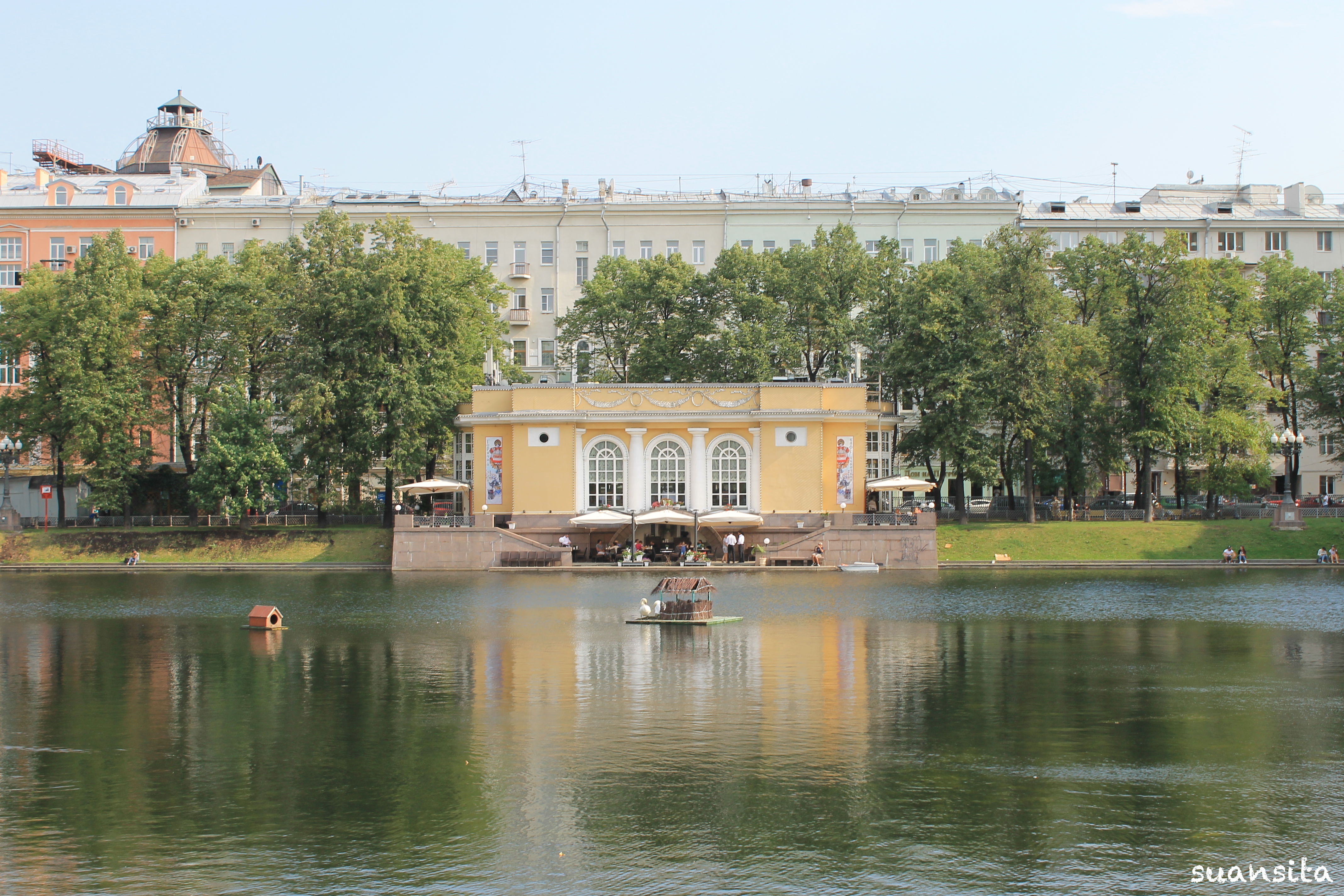
Isn’t it boring that I should want my travel destinations to simply meet my expectations rather than surprise me?
I often mention my longstanding love for Europe. I’d dreamed of going ever since I was a child and when I made my first trip (a lightning 9-day circuit covering four countries) at age 16-going-on-17, I found it to be everything I’d wanted it to be – but so much richer in every way. It met and exceeded my expectations and I loved it.
On the flip side, Morocco wasn’t so far off the mark in my mind, but still there was something lacking. Similarly, Buenos Aires was pretty much what I’d thought it would be, but a paler version of the picture I had in my mind – I didn’t think so much of it, preferring Santiago de Chile which I’d had no preconceptions about. Ecuador and Turkey were also “blank slates” for me, in that sense, making those experiences special and exciting.
“I’ve heard so much about you!”
I have a tendency to talk about places as if they were people with personality – people who have influenced, encouraged and even hurt me. It strikes me that we could make similar observations about our expectations of the people we meet.
There are those we’ve “heard so much about” who live up to the hype, and those who disappoint. Sports stars always seem to be taller in person than they look on TV (much like both Both Buenos Aires and Moscow were bigger than I imagined they would be). Friends of friends I get introduced to are often more or less like they were described to me. When I was part of the Oaktree Foundation, meeting those “higher up” in the hierarchy of our youth organisation was a mixed bag experience – for example, one maintained their polite but distant public persona when in a smaller more intimate group with us; another seemed distant and a little dismissive even; still another turned out to be more personable and interesting than I ever would have guessed. In Ecuador, I myself had the experience of being a much-hyped guest in Guayaquil and Quito – friends I’d made in Loja had told their friends back home “all about me”; I definitely hope but can’t be sure I met their expectations of me!
There are people we meet and initially believe to be a certain way, who turn out to be quite different to the persona we attribute to them. Sometimes the surprise is pleasant – a hidden talent, a unique passion or hobby. Sometimes it’s not – I’ve discovered friends who’d been suffering from depression and I’d had no idea (I guess we weren’t such close friends, sad as that may seem); I have on occasion found friendship didn’t mean quite as much to some people as I’d hoped.
But perhaps these are discoveries we’re able to make only if we take the time to get to know a person, a city. I was in Moscow for three days – who am I to say what she should be like, let alone judge her to be “not quite Muscovite enough”? When we briefly visit famous tourist destinations we judge them the way we judge famous people – harshly, and without really knowing anything about them except hearsay and photos. However, when we spend a significant length of time in a place (famous or otherwise), we get to know them and evaluate them more evenly – surprises, expectations, warts, talents and all. When we actually make that kind of investment, these places cause us to reflect on our own lives. They allow us to make discoveries about ourselves and therein, perhaps, lies the central value in the activity of travelling.

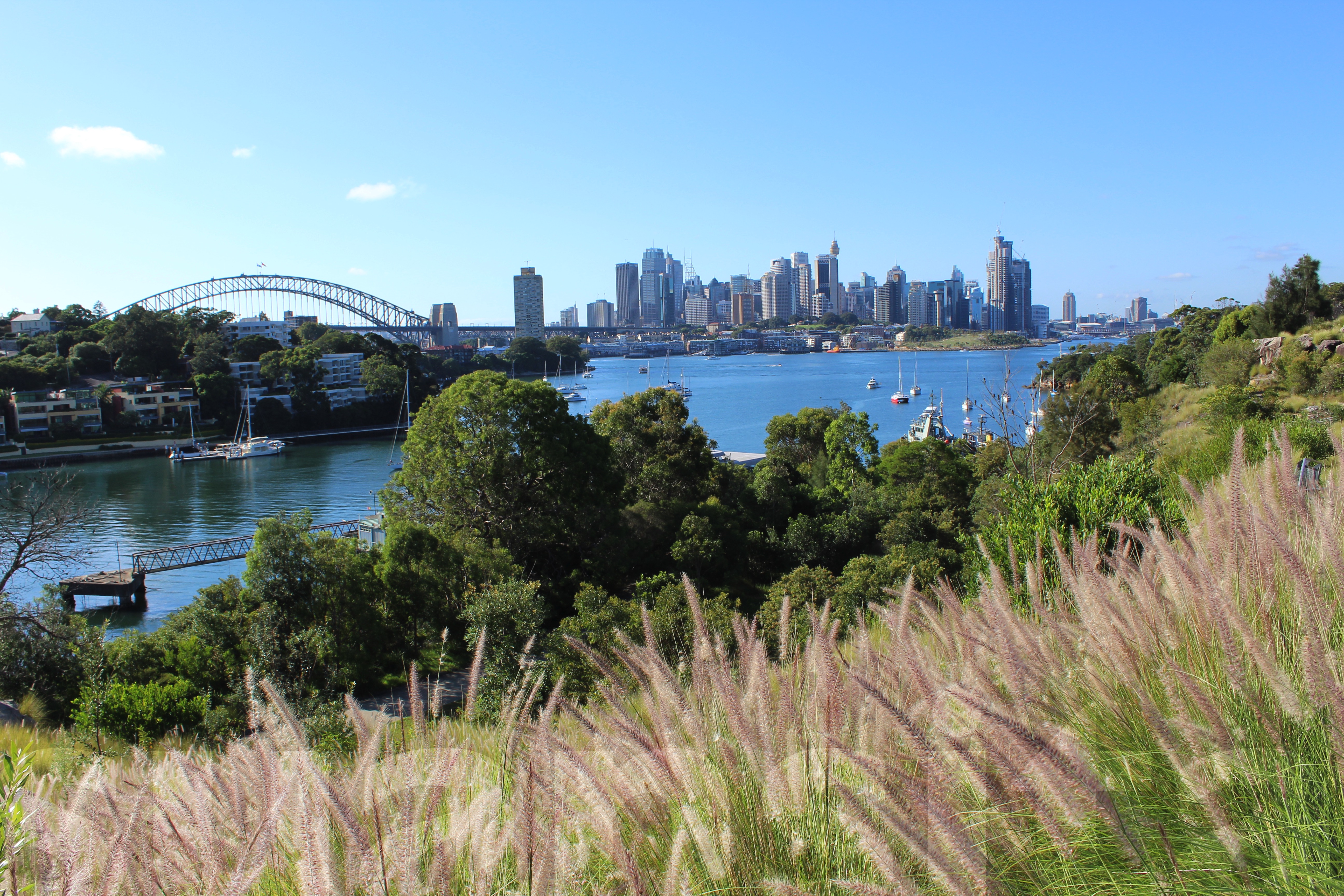
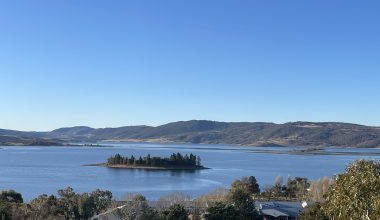
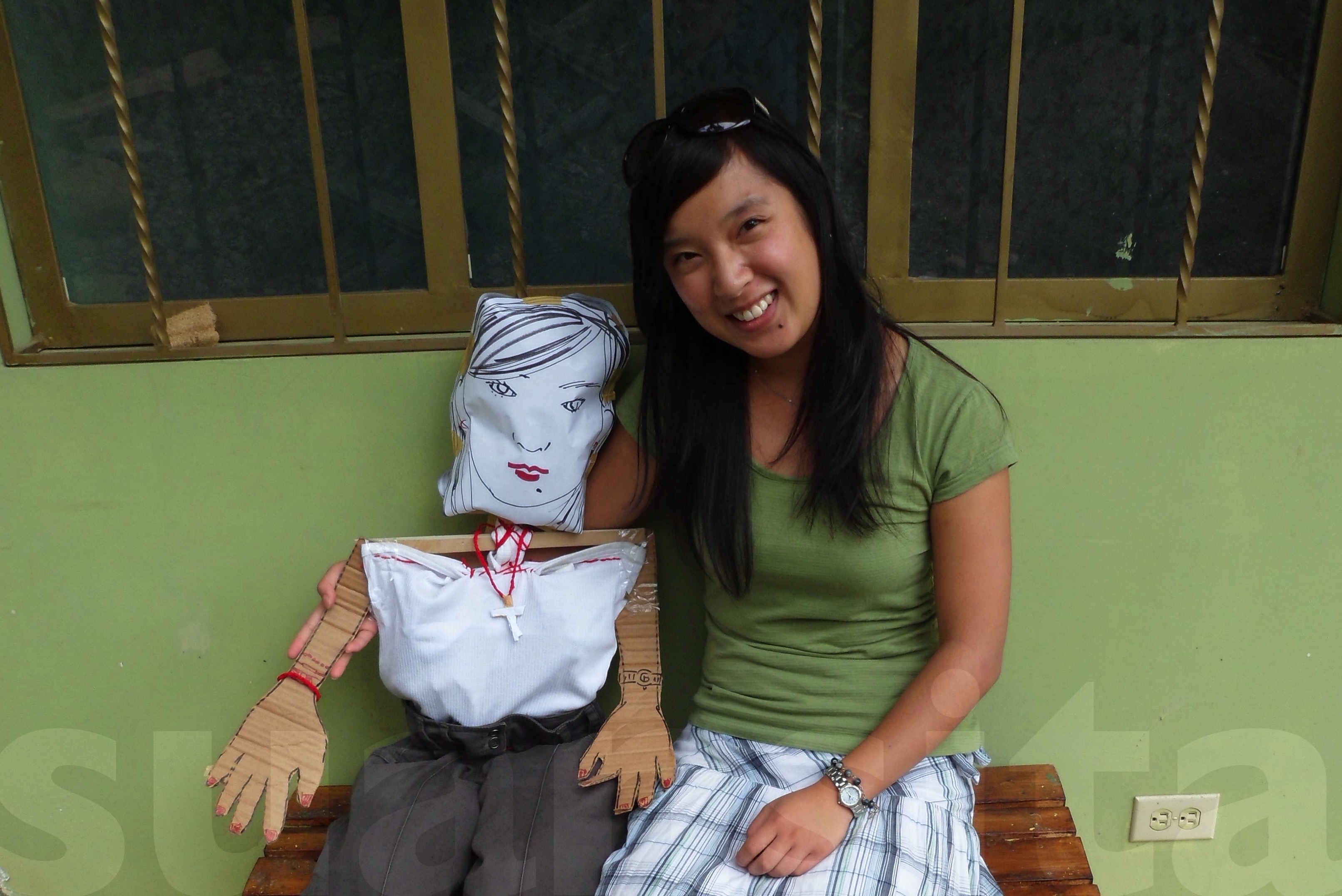
6 comments
There is a saying in “Love is one step from hate”, and I think this might sum up your experience. Today the sun shines, and everything is light and love but tomorrow, it’ll snow and it’ll be the moscow of your assumptions…
Well, I am reflecting on whether or not it would actually be good for me to see Moscow just as I pictured it!
Very interesting take on travel. In that vein, why do we choose to visit one place over another if not by expectations? That is phrased as rhetorical but it’s actually not. I guess learning about a place creates desire and expectation concurrently.
Mm yeah, good point – I do think desire and expectation work together. I wonder if non-visual expectation (for example, based on word of mouth) is less of a setup for disappointment than, say, watching a doco where all the colours have been enhanced and there are no tourists in the way of the shots? But I doubt there’s a science or equation to getting the balance of expectation and satisfaction right and there are so many variables at play.
Thanks for your comment, Luke 🙂